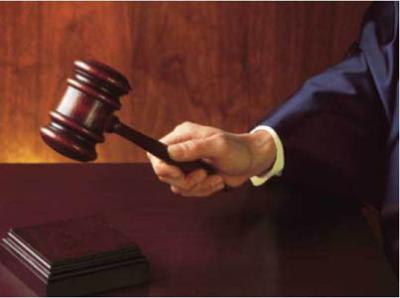Le Senior Puisne Judge Eddy Balancy et le juge Razack Hajee Abdoula ont rejeté l’appel logé par le DPP, qui contestait la décision prise par la Cour criminelle intermédiaire de rayer l’accusation d’homicide par imprudence logée contre la Clinique Mauricienne. Cette instance avait donné gain de cause à l’avocat de la clinique, Me Ivan Collendavelloo, SC, qui a soulevé un point de droit à l’effet qu’il « disclosed no cause of action ».
Selon l’acte d’accusation, « on or about the 1st day of July, in the year 2001, on the premises of La Clinique Mauricienne as represented by its director, Dr Hum Koung Ng Lung Kit, was unlawfully and by negligence, at the place aforesaid, the unwilling cause of the homicide of one Jean Florian Françoise ». L’acte a précisé les détails suivants : le jour des faits, une certaine Marie Désirée Caroline Françoise a été admise à la clinique afin d’accoucher du petit Jean Florian. Mais le nouveau-né devait subir des brûlures après sa naissance, ce qui a causé son décès.
A la suite de la soumission des “particulars” réclamés par la défense à la poursuite, notamment « all the acts which according to the prosecution were acts of negligence », l’avocat de la poursuite a indiqué qu’une « mid-wife Mrs K. P. unduly allowing the baby to be exposed to a heater in the operating theatre shortly after its birth ». Réagissant à ces précisions, Me Collendavelloo a réclamé que l’acte d’accusation soit rejeté, étant donné que la poursuite a elle-même affirmé que l’acte de négligence a été causé par une personne qui figure, en fait, sur la liste des témoins de l’accusation. De ce fait, a soutenu Me Collendavelloo, l’acte d’accusation ne contient rien qui puisse être reproché à la clinique.
Lui donnant la réplique, l’avocat de la poursuite a, en citant le jugement The CEB v The State – qui date de 2010 –, déclaré : « Corporate liability devolved upon the accused in as much as there was an identifiable individual ». L’avocat de la défense lui a répondu : « The accused could not, as employer, suffer the penal consequences of the acts of his employee and that para. 44 of the judgment in the case just cited could not be read as indicating the contrary. »
Par la suite, l’avocat de la poursuite a, dans sa réponse, fait référence, sans raison apparente selon le magistrat de la première instance, à la section 44 de l’Interpretation and General Clauses Act pour soutenir que, puisque l’affaire concernait la direction, « it did not render the information defective ».
Les juges citent le paragraphe 44 du jugement du magistrat de la Cour intermédiaire, qui traite de l’« identified individual » : « Corporate criminal liability therefore arises either under statute (as in the case of breach of reporting offences under the Financial Intelligence an Anti Money Laundering Act) or under the Criminal Code as interpreted by the Courts. It would therefore be stretching the wording of the said paragraph 44 to hold that criminal liability would simply arise where there is “an identified individual” because this begs the question as to the scope of the duty of care imposed on the company involved. The defence gave a vivid example of a hotel manager who cannot be held criminally liable where one of the employees murders one of the hotel guests. A more everyday occurrence would be the owner of a bus company who cannot be held criminally liable under the Criminal Code for the imprudence of one of its bus drivers who is totally to blame for a fatal road accident. »
CLINIQUE MAURICIENNE: L’appel du DPP rejeté par la Cour suprême
- Publicité -
EN CONTINU ↻


